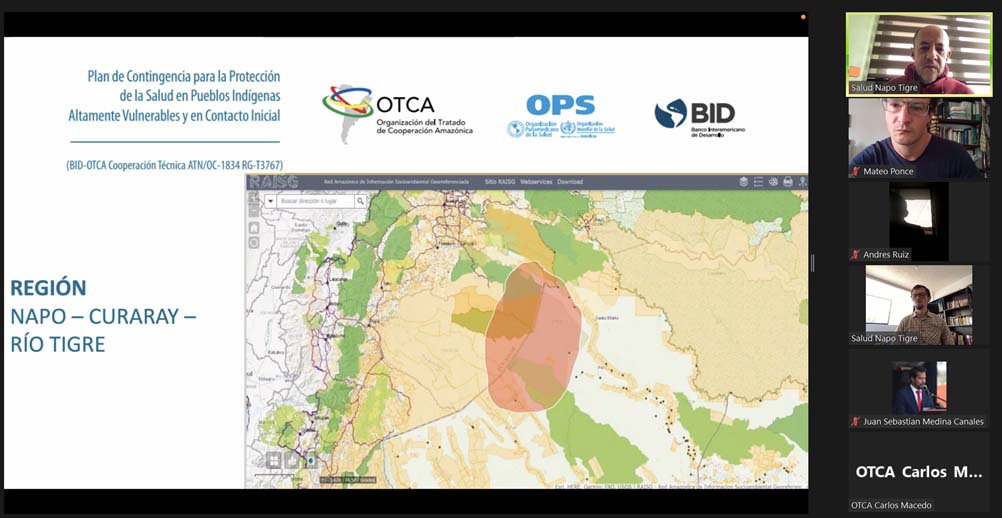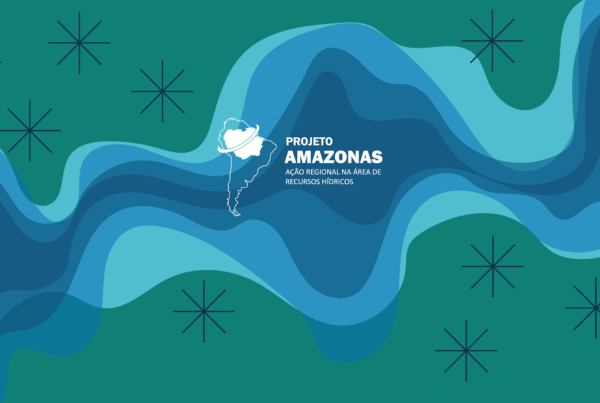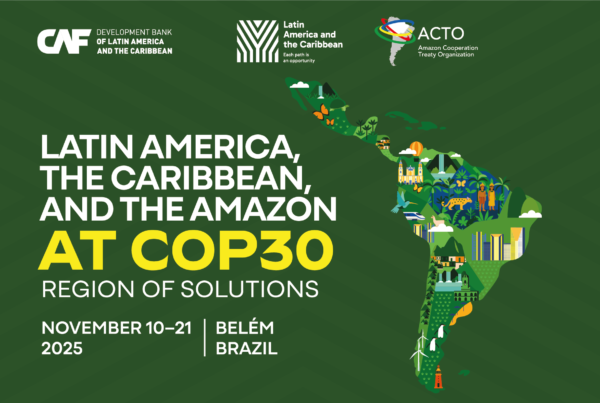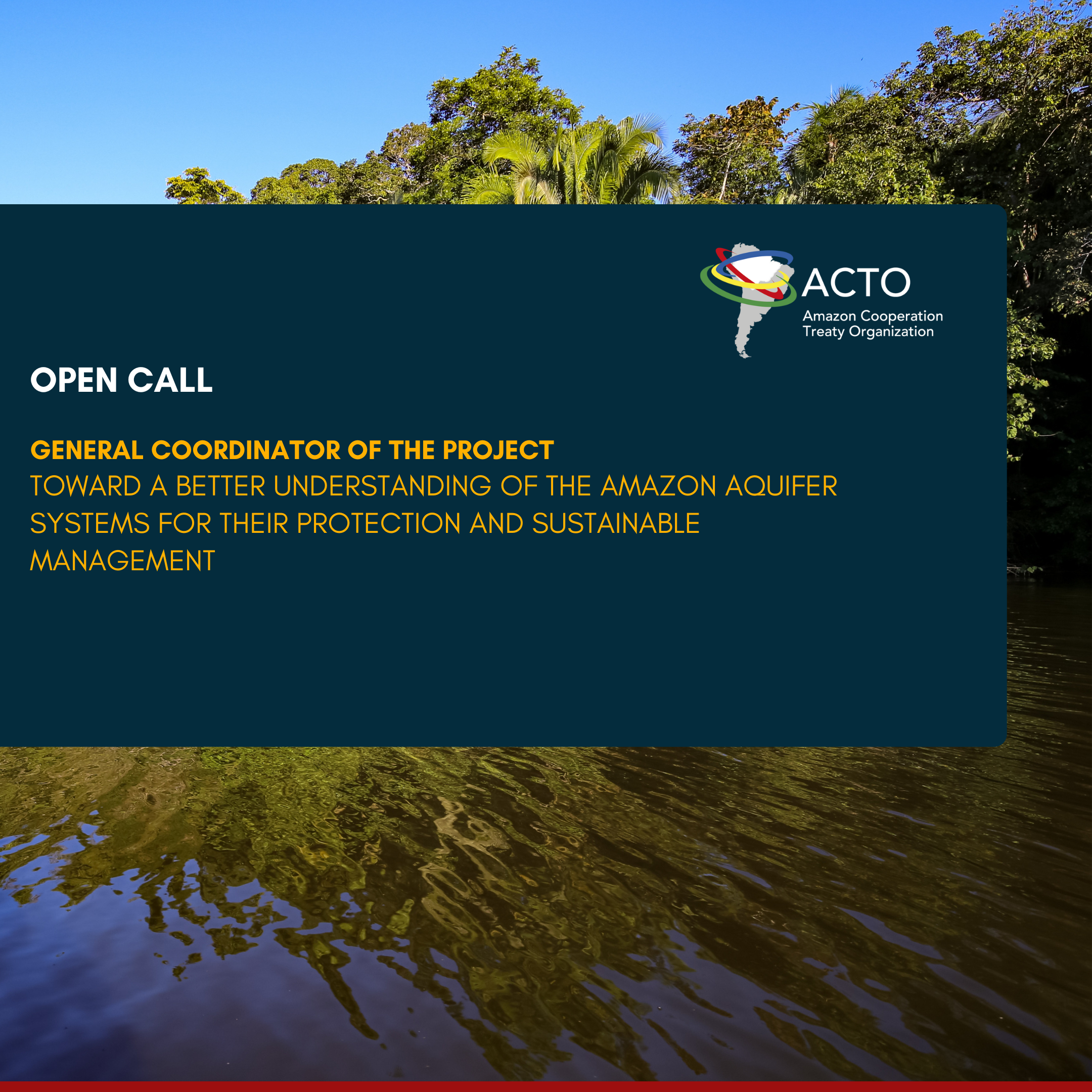The results of the Health Situation Analysis report in the Napo – Curaray – Río Tigre Region, within the framework of the Contingency Plan for Health Protection of Highly Vulnerable Indigenous Peoples and in Initial Contact (ACTO/PAHO/IDB) project, were presented to the leadership of the Sapara Nation of Ecuador (NASE), in a virtual meeting held on January 27, 2022.
This event was attended by the region’s consulting team, Enrique Vela and Marco Andrade, with the technical support of Mateo Ponce and Juan Sebastián Medina. Participants on behalf of the Sapara Nation were Nemo Grefa (President), Andrés Ruíz (Vice President), Cesar Santi (Health Director), and Irene Toqueton (Gender and Family Director), in addition to the ACTO technical team.
The meeting aimed to present the health analysis report with the socio-cultural characterization of the Napo – Curaray – Río Tigre region, which has connections at different levels such as geographic, environmental, health, ethnic, among others, with the presence of several indigenous peoples, including the Sapara Nationality of Ecuador (Pastaza province).
The presentation of the report led to a dialogue and to collect the different situations and concerns of this Nation. The complex health situation and the pressures on natural resources in the border limits between Ecuador and Peru (Conambo/Tigre River) were highlighted.
Regarding health issues, the importance of strengthening and articulation from the Ministry of Public Health was discussed, to promote regular and emergency care to the communities of the Sapara Nation, in addition to the status of the situation regarding COVID-19 in the territory.
Finally, the Project Coordinator, Carlos Macedo, highlighting the valuable contribution of the participants in the event, reinforced the need to strengthen health in a collaborative manner, as well as the importance of vaccination for COVID-19, according to the WHO guidelines.



